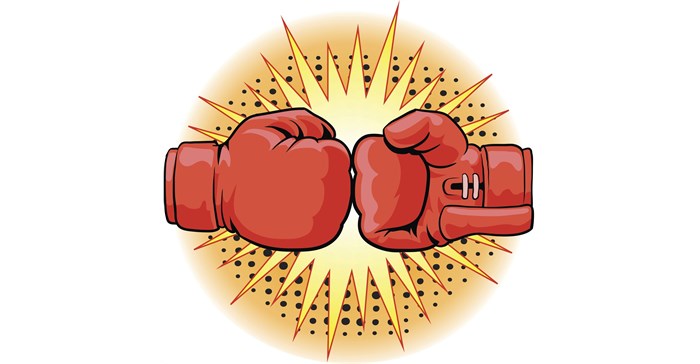Underdogs have a special place in the hearts of many. Whether it's a revolt against the Romans or the ice-veined Spartans' last stand against the Persians at Thermopylae, either through superior tactics or better use of technology and resources the outnumbered often triumph against incredible odds.

Image source: Gallo/Getty Images.
The world of business is no different: today we have well-established brands and we have category challengers challenging the way we see the market and perception of the world around us. They have great ambition and shoestring budgets and make or break attitudes that make traditional models and hard-and-fast rules work in their favour.
As Mark Barden points out in Why Challenger Brands Matter in the Age of Disruption, categories get stuck until someone unsticks them.
Be bold
Netflix is a great example of this in action: Its initial mail order service of older movie titles was the poor relation to the Blockbuster experience of impulse shopping for new releases. Nevertheless, Netflix gained a toehold with movie buffs, and it later conquered all when it changed its offering to all-you-can-view deals in an on-demand format.
A challenger brand needs to be bold because its very nature dictates that it must lead and not follow. They do this by challenging an existing belief or championing a new model or changing how a product or service is experienced. One of the key ways of doing this is to create an emotional connection that will connect with consumers, creating fans and not just followers.
Jude Bliss in “The Challenger Project” explains that such a connection aims to jolt customers to reassess why and how they choose the brands they do. The way in which we communicate –– the how, when, where, and the ability to connect with our audience through communication can, therefore, be used as a tool of the challenger brand.
Break away from the pack
As a challenger brand, you are not the biggest, best or most well known in the industry. Mark Sullivan in Challenger Brand talks about the challenger brand as the underdog, and how “They win not by mimicking the pack ahead, but by breaking away from it.”
Challenger brands do not have the luxury of a having an established and well-known reputation as the household brands do, these brands often do not need to defend these reputations as they are so entrenched – they can even tend to become lazy in this regard.
Where a challenger brand can use this to their advantage is by working harder to establish a reputation, constantly innovating and setting the pace in the process. Avis demonstrated this sentiment with their “We Try Harder” campaign by Paula Green and Helmut Krone, pointing out that “When you’re only No.2, you try harder.”
Avis overhauled their entire business, and pioneered a new standard for the rental car industry, closing the gap in the market with their competitors and increasing their profit margins in doing so.
Take the risk
What has worked in the past or for a competitor, although arguably valuable as far as best practices go, should not dictate the rules of the game, or even the game itself. That is the where the challenger brand finds its sweet spot, they need to think differently and be bold enough in doing so to carve out a piece of the market, and hold on to it.
Being a challenger brand is about stepping out and taking a risk. Whether you are standing up for the consumer as a People’s Champion or using wit and humour to challenge complacency as an Irreverent Maverick would, you might be standing up and challenging the relevance of the past and traditional ways of doing things as the Next Generation Challenger does.
Either way whatever you are challenging and the way in which you do so requires taking a risk.
Morgan Spurlock said in his Ted Talk “
The Greatest Ted Talk ever sold” when you train your employees to be risk averse, then you are preparing your whole company to be reward challenged.














































